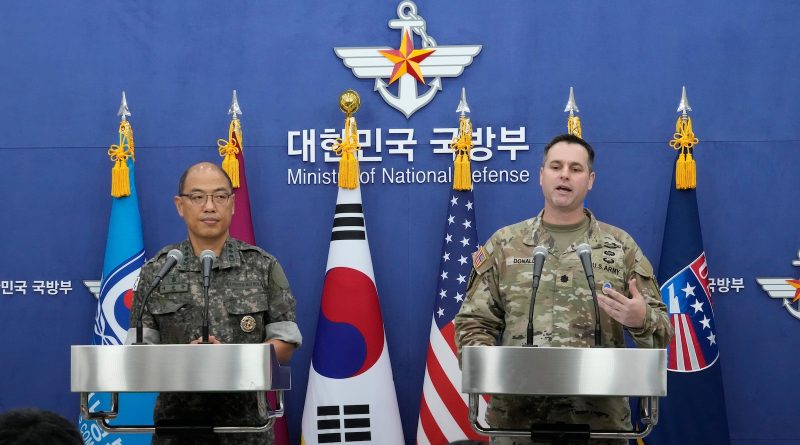South Korea and US to commence joint military exercises next week in response to North Korean provocations
SEOUL, South Korea — The Republic of Korea and the United States will commence their yearly joint military drills in the upcoming week, with a primary focus on enhancing their combined capabilities to prevent and safeguard against escalating nuclear threats from North Korea, as stated by the allies on Monday.
The exercises have the potential to provoke a hostile reaction from North Korea, which interprets them as practice for a potential invasion and has utilized the military collaboration between the allies as a justification to further the advancement of nuclear weapons and missile systems.
Military officials from South Korea and the United States revealed that this year’s Ulchi Freedom Shield operation, set to take place from August 19-29, will incorporate simulated computer exercises aimed at bolstering preparedness against various threats such as missiles, disruption of GPS signals, cyberattacks, alongside field maneuvers and live-fire drills.
The primary objective for the allies is to “further enhance (their) capacity and stance to prevent and protect against weapons of mass destruction,” as mentioned in a statement by South Korea’s Joint Chiefs of Staff.
The exact number of troops participating in the summer exercises, which typically involve thousands, has not been confirmed by the South Korean and U.S. military authorities at this time.
Tensions on the Korean Peninsula remain high, with North Korean leader Kim Jong Un utilizing Russia’s conflict with Ukraine as an opportunity to accelerate weapon development, while also issuing verbal threats of nuclear confrontation towards Washington and Seoul.
In response, South Korea, the United States, and Japan have expanded their joint military drills and refined their strategies for nuclear deterrence centered around U.S. strategic assets.
During last year’s Ulchi Freedom Shield exercises, North Korea carried out ballistic missile tests that were described as simulating “scorched earth” nuclear attacks on South Korean targets.
In recent weeks, North Korea has also launched thousands of balloons containing debris towards South Korea as part of a peculiar psychological warfare campaign, further deteriorating relations between the two rivals.
Debris from at least one of these balloons fell on the South Korean presidential compound last month, raising concerns about the vulnerability of critical South Korean facilities. The balloon did not contain any hazardous materials, and no injuries were reported, according to South Korea’s presidential security service.

